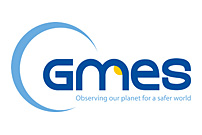Global Monitoring for Environment and Security: First concrete steps

On the 10th of November, the European Commission adopted a new Communication on Global Monitoring for Environment and Security (GMES): From concept to reality. This Communication that will be on the agenda of the next European Space Council, plans to introduce the first three earth observation services: emergency management, land monitoring and marine services. After GALILEO, the Global Monitoring for Environment and Security (GMES) has become the second EU flagship in space policy.
Natural and manmade catastrophes in Europe, America, Asia and Africa, coupled with increased security needs, have further reinforced the case for improved monitoring systems. GMES gathers relevant earth observation data, for example concerning environmental pollution, floods, forest fires or earthquakes, and supplies them in reliable and user-friendly services in support of public policy makers’ needs. In short: GMES ensures that crisis situations can be better anticipated and managed.
GMES is an EU-led initiative, in which the Commission will manage related actions for identifying and developing services and the European Space Agency (ESA) will manage the implementation of the space segment.
Europe needs to have available a capacity which allows it independently to evaluate its policy responses. A comprehensive Earth observing system using space borne and in-situ techniques (land, air and sea) through well defined operational services, is key to ensuring sustainable and high quality environmental and security monitoring.
Start with emergency management, land monitoring and marine services GMES will be developed in steps starting with three fast track services (land, marine, emergency) by the end of 2008:
1. The Emergency Management service aims to reinforce the European capacity to predict and respond to crises and emergencies associated with natural and man-made disasters such as:
- meteorological-driven hazards, e.g. storms, fires, floods;
- geophysical hazards, e.g. earthquakes, tsunamis, volcanic eruptions, landslides
- technological disasters, whether deliberate or accidental, e.g. urban fires, chemical accidents on industrial sites
- humanitarian disasters generated by sudden natural, technological and weather driven disasters.
2. The Land Monitoring service will deliver timely, important information on land use and land cover changes for a number of identified areas at European, national and local scale. In the short to medium term the proposed service will focus on mapping of land cover and land use for Europe’s:
- spatial development perspective
- urban environment strategy
- implementation, review and monitoring of EU policies.
3. The proposed Marine Services will provide data, information products and indicators on the marine environment. The objective is to provide general information, structured at the European level, on the condition of the seas, including:
- their monitoring;
- indicators for global and regional mapping of ocean climate and variability;
- operational ocean analyses and forecasts (e.g. ocean current, temperature, salinity fields);
- operation, validation and maintenance of in situ observing networks.
GMES at the service of the EU
GMES will substantially increase the ability of geospatial information to support a variety of EU policies:
- monitoring global climate change and the environmental commitments made within the EU and globally to control its causes;
- the security of European citizens at Union level, through for example border surveillance, civil protection, and internal security;
- Common Foreign and Security Policy, including European Security and Defence Policy, development aid and humanitarian assistance, and
- agriculture, regional development, fisheries, transport.
Some concrete examples include:
- in agriculture: the area acreage checks and agri-environmental measures,
- in fisheries: the Vessel Monitoring and Vessel Detection systems,
- in external relations: the Rapid Reaction mechanism,
- in environment: natural hazards (eg forest fires, floods, tsunami response) and global climate change monitoring,
-
in development: policy water, vegetation and food security monitoring activities.
More information
Communication from the Commission to the Council and the European Parliament, Global Monitoring for Environment and Security (GMES): From concept to reality and annexes








